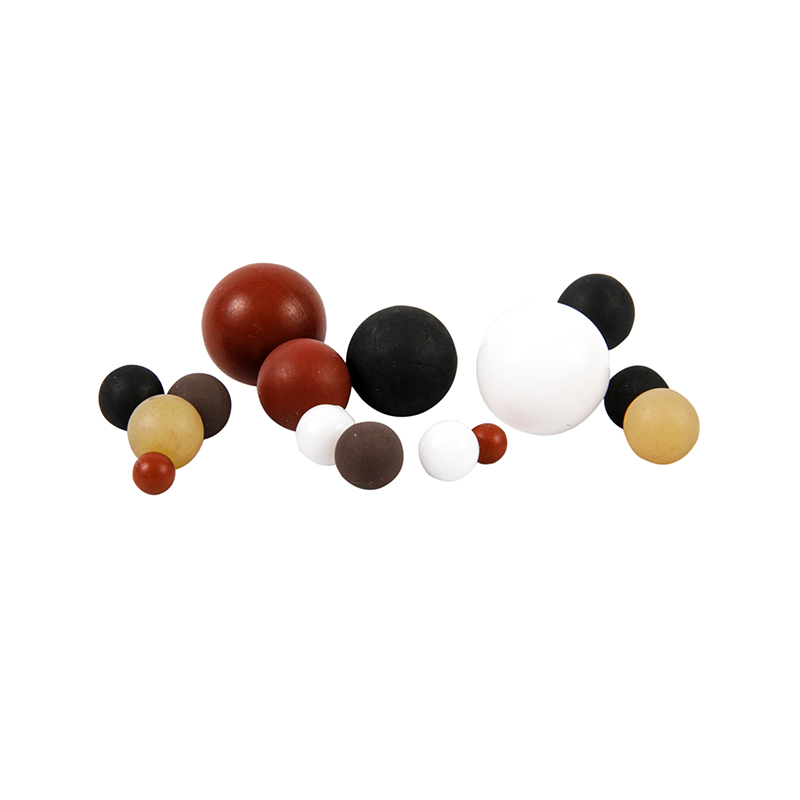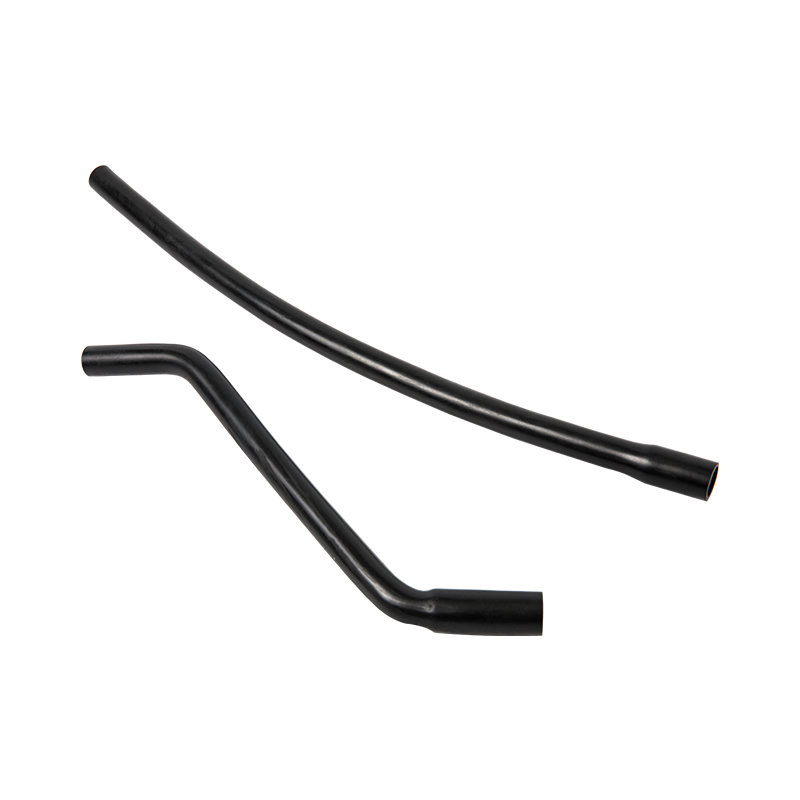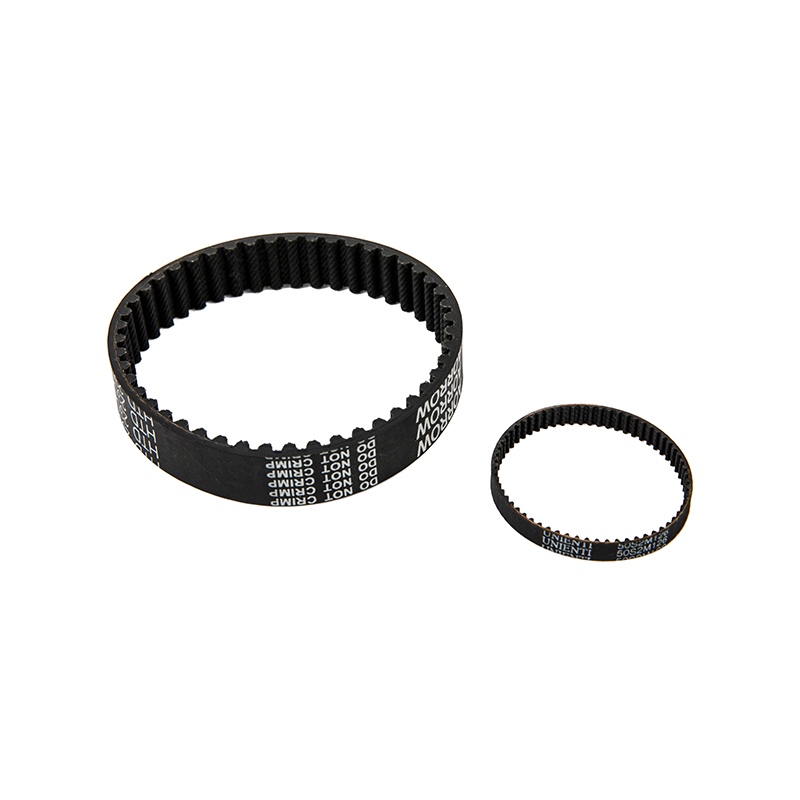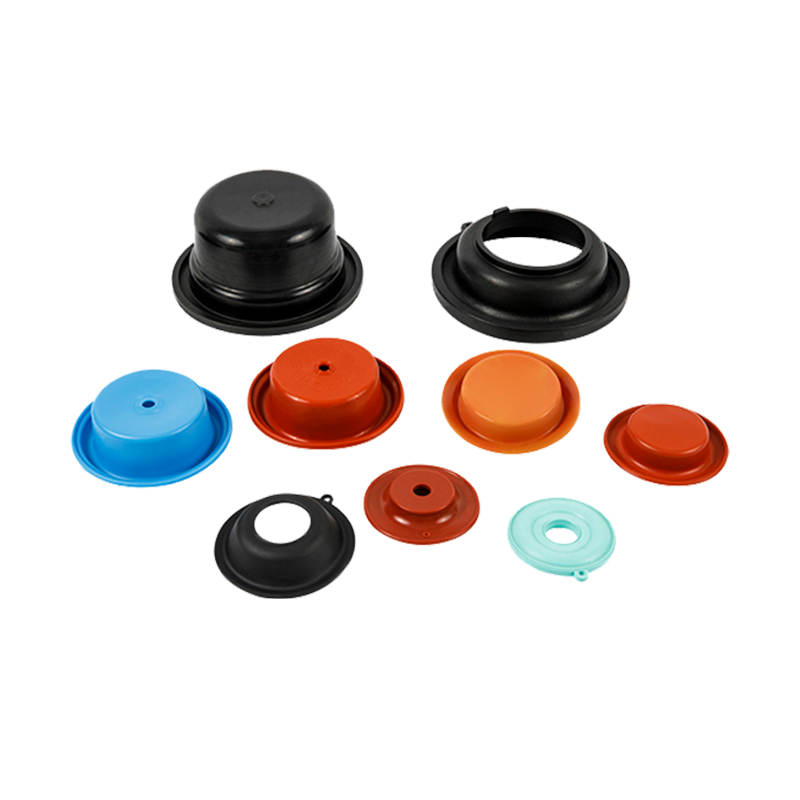High Quality Solid Natural Rubber Ball for Seal
Application
1. Industrial Valves & Piping Systems
-
Function:
-
Isolation Sealing: Blocks fluid/gas flow in ball valves, plug valves, and check valves.
-
Pressure Regulation: Maintains seal integrity under low-to-medium pressure (≤10 MPa).
-
-
Key Advantages:
-
Elastic Recovery: Adapts to surface imperfections for leak-tight closure.
-
Chemical Resistance: Compatible with water, weak acids/alkalis, and non-polar fluids.
-
2. Water Treatment & Plumbing
-
Applications:
-
Float valves, faucet cartridges, diaphragm valves.
-
-
Media Compatibility:
-
Potable water, wastewater, steam (<100°C).
-
-
Compliance:
-
Meets NSF/ANSI 61 standards for drinking water safety.
-
3. Agricultural Irrigation Systems
-
Use Cases:
-
Sprinkler heads, drip irrigation regulators, fertilizer injectors.
-
-
Performance:
-
Resists abrasion from sandy water and mild fertilizers.
-
Withstands UV exposure and outdoor weathering (EPDM-blend recommended).
-
4. Food & Beverage Processing
-
Applications:
-
Sanitary valves, filling nozzles, brewing equipment.
-
-
Material Safety:
-
FDA-compliant grades available for direct food contact.
-
Easy cleaning (smooth non-porous surface).
-
5. Laboratory & Analytical Instruments
-
Critical Roles:
-
Sealing reagent bottles, chromatography columns, peristaltic pumps.
-
-
Advantages:
-
Low extractables (<50 ppm), preventing sample contamination.
-
Minimal particle shedding.
-
6. Low-Pressure Hydraulic Systems
-
Scenarios:
-
Pneumatic controls, hydraulic accumulators (≤5 MPa).
-
-
Media:
-
Air, water-glycol mixtures, phosphate ester fluids (verify compatibility).
-
Corrosion Resistant
CR balls feature an excellent resistance against sea and fresh water, diluted acids and basis, refrigerant fluids, ammonia, ozone, alkali. Fair resistance against mineral oils, aliphatic hydrocarbons and steam. Poor resistance against strong acids and basis, aromatic hydrocarbons, polar solvents, ketones.
EPDM balls are resistant to water, steam, ozone, alkali, alcools, ketones, esters, glycols, salt solutions and oxidizing substances, mild acids, detergents and several organic and inorganic bases. Balls are not resisting in contact with petrol, diesel oil, greases, mineral oils and aliphatic, aromatic and chlorinated hydrocarbons.
EPM balls with good corrosion resistance against water, ozone, steam, alkali, alcohols, ketones, esters, glicols, hydraulic fluids, polar solvents, diluted acids. They are not suitable in contact with aromatic and chlorinated hydrocarbons, petroleum products.
FKM balls are resistant into water, steam, oxygen, ozone, mineral/silicon/vegetable/animal oils and greases, diesel oil, hydraulic fluids, aliphatic, aromatic and chlorinated hydrocarbons, methanol fuel. They are not resisting against polar solvents, glycols, ammonia gases, amines and alkalis, hot steam, organic acids with low molecular weight.
NBR balls are resistant in contact with hydraulic fluids, lubricant oils, transmission fluids, not polar petroleum products, aliphatic hydrocarbons, mineral greases, most diluted acids, basis and salt solutions at room temperature. They are resisting even into air and water environments. They are not resisting against aromatic and chlorinated hydrocarbons, polar solvents, ozone, ketones, esters, aldehydes.
NR balls with good corrosion resistance in contact with water, diluted acids and basis, alcohols. Fair in contact with ketones. The behaviour of balls is not suitable in contact with steam, oils, petrol and aromatic hydrocarbons, oxygen and ozone.
PUR balls with good corrosion resistance in contact with nitrogen, oxygen, ozonemineral oils and greases, aliphatic hydrocarbons, diesel oil. They are attacked by hot water and steam, acids, alkalis.
SBR balls with good resistance against water, fair in contact with alcohols, ketones, glycols, brake fluids, diluted acids and basis. They are not suitable in contact with oils and fat, aliphatic and aromatic hydrocarbons, petroleum products, esters, ethers, oxygen, ozone, strong acids and basis.
TPV balls with good corrosion resistance in contact with acid and basic solutions (except strong acids), little attack in presence of alcohols, ketones, esthers, eters, phenols, glycols, acqueous solutions; fair resistance with aromatic hydrocarbons and petroleum products.
Silicone balls with good corrosion resistance in contct with water (even hot water), oxygen, ozone, hydraulic fluids, animal and vegetal oils and greases, diluted acids. They are not resisting in contact with strong acids and basis, mineral oils and greases, alkalis, aromatic hydrocarbons, ketones, petroleum products, polar solvents.









